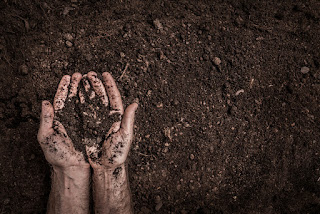Clackamas Holy
Growing up in Oregon City, Oregon, words like Clackamas and Willamette rolled off the tongue and stuck deep to bone. They were natural and comfortable, breathing out canoeing sprees in July or school field trips to the old James River paper mill. As kids we’d pack up in the car on Saturdays and head out to grandma and grandpa’s farm in Molalla or head over to Oneonta gorge on particularly hot summer days after church. Thirty miles north stood Celilo Falls, which we’d never actually seen due to construction of The Dalles dam, but my sisters and I begged for stories about dad driving up to buy salmon from the Natives on the weekend. We’d press our faces against the glass on long trips to Walla Walla and imagine the magnificent cascades roaring next to us, Celilo people perching on their platforms, waiting for rock battered salmon to leap into their dipnets.
I invented a game called ‘Imagine When’ because of stories like this. Names and places had little conscious inspiration for the exercise at the time; all you had to do was imagine what something would have looked like before there were buildings and bridges, dams and roads gumming up the view. One of my favorite locations for this was from the sports field at my high school, Portland Adventist Academy. It was a straight cut view to the east, placing Mt. Hood at center stage. I’d sit there after school got out in Autumn and squint my eyes so I could almost blot out the hospital and mall creeping into frame. It made me a little sad, mostly because the view was so pretty without all the concrete clutter. I didn’t see how people could find mid-century architecture more appealing. Or why I was the only fifteen year old sitting in the field courting the past this way.
When I started my freshman year at Walla Walla University, Dan Lamberton had me read Forests by Robert Pogue Harrison. Lamberton introduced us to how our natural world, particularly our forests, informs our identity and culture. He also understood the ins and outs of language itself, of sounds and meaning. My inherent love of verbal rhythms and musicality found articulation in his classroom. He’dthrow out words like “zeitgeist” and “sonorous” like breadcrumbs to famished ducks and I gobbled them greedily. The words from home were slow in announcing themselves; it took meandering drives through the hills to Memaloose Lake before their whispers became audible. But once they did, a world began to unveil itself.
Clackamas became a mantra, its syllables uncurling in the air as I imagined the river below our property with nothing spanning it or damming it. Multnomah, the sound of midnight snow pressed down by coyote paws. Celilo exited lips as a sigh, recalling time recently gone, and with it, a legacy and a culture now buried in currents.
People would ask me where I came from when I left home to travel Europe and Asia in my twenties. Their faces scrunched like accordions when I mentioned favorite parks on the Tualitin River and trips to the Tillamook cheese factory. Watching them try to pronounce the names that I will probably be chanting on my deathbed was akin to me attempting Danish. Our tongues were too unfamiliar with the sounds to bind them to skin and soul. There is a sacred bond we share with our stomping grounds that lives in the very names we use to orient ourselves.
White settlers and explorers wiped out most of the indigenous tribes along the Clackamas and Willamette rivers with European diseases. The story is not uncommon, though no less tragic in its variations. Entire groups of people with stories and wisdom and relationships, gone. And yet their names live on, holding space for both the dead and the living. The names provide a place to heal and remember and create new stories for the land and for us.
As I age, names transmogrify from simple identification into epics. I cannot look at a person or place without wondering, “What has brought you here and where are you going?” Imagine when you had a dream firing your movements. Imagine when your capacity for forgiveness looked as full as Willamette Falls in March.
When the sun grows low against the forests and the mountains flame in the East, I will sit and tend a space for imagining when we will see the holy around us and utter its names in the night.
_________________________________
First published in Forth Magazine: http://forthmagazine.com/non-fiction/2014/09/relationship-home-identity-nonfiction-jaime-mathis/
When the sun grows low against the forests and the mountains flame in the East, I will sit and tend a space for imagining when we will see the holy around us and utter its names in the night.
_________________________________
First published in Forth Magazine: http://forthmagazine.com/non-fiction/2014/09/relationship-home-identity-nonfiction-jaime-mathis/



Comments
Post a Comment